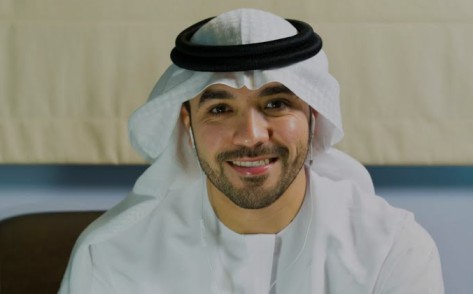Can Personal Branding Substitute for Business Capital? A Deep Dive with Global and UAE Insights

Building a strong personal brand can open doors, attract clients, and build trust. By becoming a respected figure in your industry, you can bypass many of the costs associated with traditional business promotion.
Personal branding, in essence, is the practice of marketing oneself and one’s career as a brand.
In an era marked by digital connectivity and social media prominence, personal branding has emerged as a potent tool for professionals and entrepreneurs. But can it truly substitute for business capital?
Let’s explore this intriguing proposition using a combination of global and UAE-focused illustrations:
Gary Vaynerchuk: Gary, initially known for wine critiques and retail, leveraged his vibrant personality and business acumen into a personal brand. Today, he’s a sought-after speaker, author, and CEO of a digital agency. His personal brand attracts clientele and partnerships, reducing the need for traditional advertising investments.
Elon Musk: Though associated with multiple businesses like Tesla, SpaceX, and Neuralink, Elon’s personal brand often overshadows the brands themselves. His tweets or comments can sway stock markets or product demand, demonstrating the enormous power of a personal brand in lieu of traditional promotional campaigns.
Huda Kattan: As previously mentioned, Huda transitioned from a blogger to a beauty tycoon with her brand Huda Beauty. Her strong personal brand on platforms like Instagram played a crucial role, in attracting customers and collaborators and circumventing extensive marketing expenditures.
Marie Forleo: Marie built her brand as a life coach and motivational speaker. Through courses, videos, and books, she’s cultivated a devoted following, which has significantly lowered her reliance on high-cost marketing tactics.
Anas Bukhash: A multifaceted entrepreneur, Anas leveraged his personal brand to build ventures like Bukhash Brothers, an influencer management agency, and Ahdaaf, a sports facility. His reputation facilitates collaborations, events, and brand endorsements, mitigating extensive initial investments.
Khalid Al Ameri: This Emirati content creator uses storytelling to share insights into his life, family, and the broader Emirati culture. His personal brand has garnered international attention, allowing collaborations with global entities and brands, all without a traditional business model or significant capital.
Tim Ferriss: Author of “The 4-Hour Workweek,” Tim built a personal brand around productivity and lifestyle design. His podcast, books, and speeches are a testament to how personal branding can sidestep conventional business costs.
Oprah Winfrey: From her talk show origins, Oprah has cultivated an empire. Her personal brand’s weight can launch books to best-sellers (through Oprah’s Book Club) or affect companies’ fortunes, showcasing the immense potential of personal branding.
Raha Moharrak: The first Saudi woman and youngest Arab to summit Mount Everest, Raha has built a personal brand around empowerment and adventure. Her brand has paved the way for speaking engagements, book deals, and endorsements without extensive promotional costs.
Mo Vlogs: Leveraging YouTube, Mohamed Beiraghdary (Mo) offers glimpses into Dubai’s luxurious lifestyle. His personal brand attracts sponsorships, collaborations, and ad revenue, substantiating his business model without hefty investments.
In summary, while personal branding might not wholly replace business capital, especially in sectors requiring heavy infrastructure or R&D investments, it can undoubtedly mitigate numerous costs associated with promotion, marketing, and customer acquisition.
Both global and UAE-centric examples illustrate the transformative power of personal branding in today’s digital age, suggesting a paradigm shift in how we perceive business capital and value.




